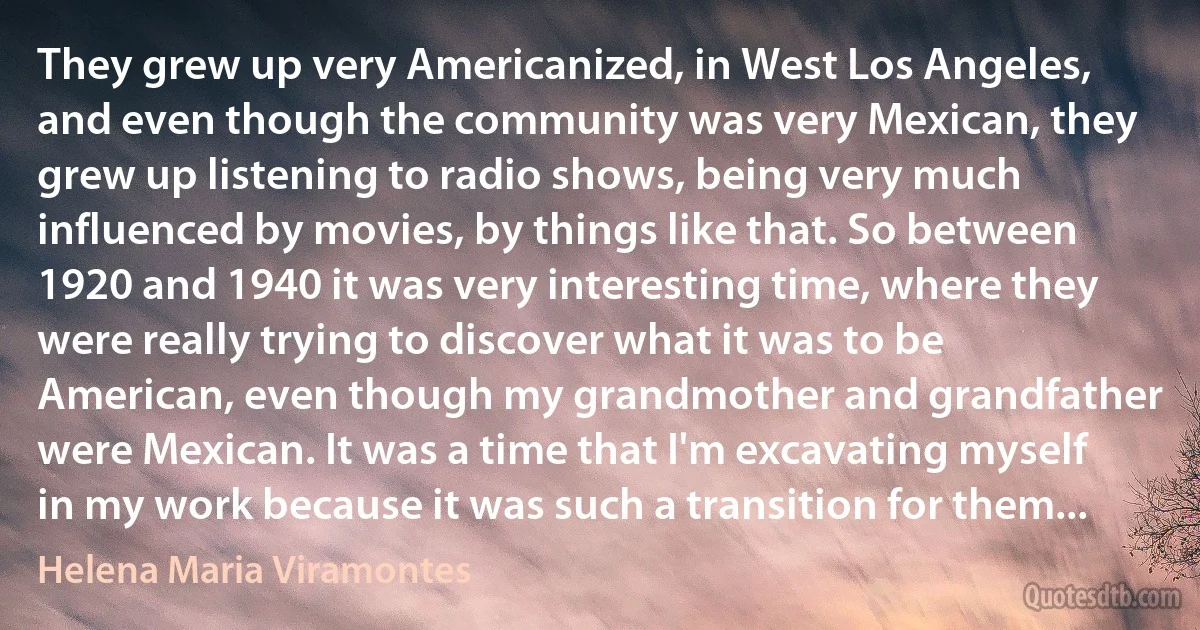Mexican Quotes - page 10
My grandfather saw a lot of violence and a lot of poverty, and really was incredibly, deeply tortured by it. It was always this elephant in the room that we never talked about growing up. He spoke fluent Spanish, but never in front of us. I think he was really afraid that we would be judged and held back by our Mexican heritage, like he was. Part of writing this play was like digging up my own family ghosts and things that I personally had always been afraid to talk about, because my family never talked about them. Also, because I'm Mexican and I'm white, I often struggle with wondering if I'm "allowed” to tell stories through this lens; growing up, the white kids always told me I was Latina or "ethnic,” and the Chicano kids always told me I was a "gringa,” so I never really felt like I fit in anywhere...

Hilary Bettis
Well, if one really wishes to know how justice is administered in a country, one does not question the policemen, the lawyers, the judges, or the protected members of the middle class. One goes to the unprotected - those, precisely, who need the law's protection most! - and listens to their testimony. Ask any Mexican, any Puerto Rican, any black man, any poor person - ask the wretched how they fare in the halls of justice, and then you will know, not whether or not the country is just, but whether or not it has any love for justice, or any concept of it. It is certain, in any case, that ignorance, allied with power, is the most ferocious enemy justice can have.

James Baldwin
I will defend my title as heavyweight champion of the world against all comers, none barred. By this I mean black, Mexican, Indian or any other nationality without regard to color, size or nativity. I propose to be the champion of the world, not the white or the Canadian or the American or any other limited degree of champion.

Tommy Burns (boxer)
The word "death" is not pronounced in New York, in Paris, in London, because it burns the lips. The Mexican, in contrast, is familiar with death, jokes about it, caresses it, sleeps with it, celebrates it; it is one of his favorite toys and his most steadfast love. True, there is perhaps as much fear in his attitude as in that of others, but at least death is not hidden away; he looks at it it face to face, with impatience, disdain or irony.

Octavio Paz
Ask almost anyone outside of academia to name famous US women of Mexican origin and you will probably hear ‘Dolores Huerta.' If the person knows our contemporary writers, maybe ‘Sandra Cisneros' and ‘Ana Castillo.' If you ask for a name from earlier times, you might get ‘Sor Juana'-the rebel nun of the 1600's. When you try to dig deeper, your companion may whimper, ‘I give up! Well...there's the Virgin of Guadalupe, she's on a lot of T-shirts. It was inevitable, then, that the need for a book like this would be recognized.

Elizabeth Martinez
I write, in the main, about the U.S. side of the Rio Grande. That I include the Mexican side is natural and inevitable; that I don't overload it, however, is because I want to present an American literature that was (historically) founded by the neighboring country as seen by its linguistic contribution. To have ignored Mexico would have been a blunder and to have larded it heavier, my work would not have been an American literature, it would have been something else; as to what, I don't know, but Mexico, in some parts and in some ways, had to be included...

Rolando Hinojosa-Smith


